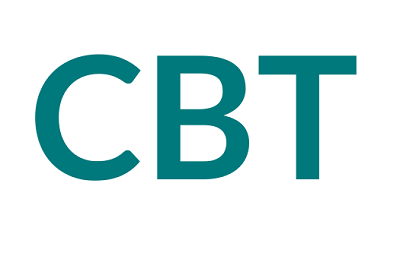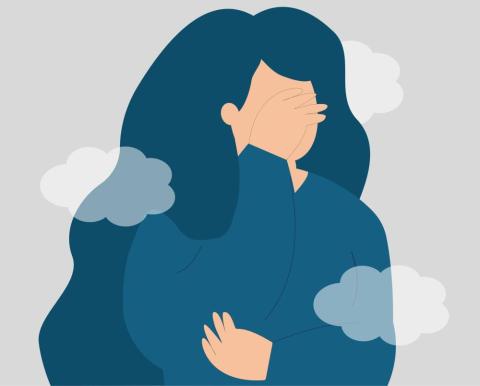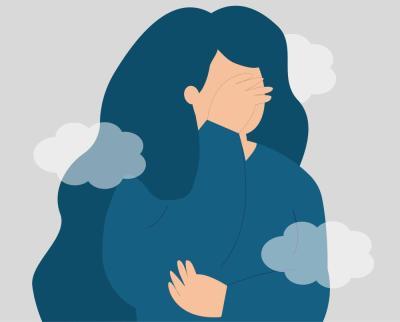Three Things I Need to Know About CBT (Cognitive-Behavioral Therapy)
Three Things I Need to Know About CBT (Cognitive-Behavioral Therapy)

1. What is CBT?
Cognitive-behavioral therapy (CBT) is an evidence-based treatment that challenges ineffective thought patterns (cognitions) and ineffective behavior patterns (behavioral) to pursue a more fulfilling life. Behavioral therapy alone emphasizes how we learn to behave based on the consequences of the action (i.e., positive and negative reinforcement). However, CBT is more comprehensive: teaching clients how to think differently through cognitive interventions (i.e., interpreting a situation in a more helpful way) and behave differently with behavioral interventions (i.e., doing the opposite action to a dysfunctional emotion, such as facing a feared situation when anxious or exercising when depressed). CBT is an evidence-based treatment that can be used to treat many disorders, including anxiety, depression, post-traumatic stress disorder, and obsessive-compulsive disorders.
Early in treatment, the therapist and client develop a productive therapeutic relationship, including mutual trust, respect, and shared treatment goals. Next, the therapist and patient work together to carefully list the problematic thoughts and behaviors to be changed, along with the triggers that come before and consequences that come after. Patients then actively practice modifying their thoughts and behaviors, while the therapist provides support and encouragement. First, the therapist guides these learning-based treatment exercises in session. Then, the patient independently practices these healthy behaviors between sessions to promote better functioning in a variety of settings. As treatment progresses, the patient learns the skills necessary to become their own coach, challenging and modifying their own maladaptive thoughts and behaviors. Throughout the treatment process, the therapist continuously evaluates the treatment effectiveness and adjusts the treatment procedures accordingly. CBT is a treatment strategy that has essential components, yet is tailored to individual patient needs.
In the midst of current events, isolation can surely reinforce or exacerbate symptoms of anxiety. The cognitive-behavioral model explains how dysfunctional thoughts and avoidance behaviors maintain feelings of anxiety. This cascade begins with a fear trigger. For example, someone with social anxiety disorder who has a fear of public speaking could be triggered by having to speak in front of a crowd. The trigger then causes a threat misappraisal, making the person think that they will be judged harshly for making a small mistake (such as blushing or stumbling over a word) and that they won’t be able to handle it. These dysfunctional thoughts lead to physiological symptoms of anxiety, including (but not limited to) a faster heart and respiratory rate, sweating, flushing, and shaking. Understandably, these negative symptoms lead to avoidant coping, such as running away from the crowd (and opportunity). As a result, there is an absence of corrective experience (i.e., not learning how to deal with mistakes) that reinforces the original threat misappraisal (i.e., I can’t handle mistakes). Therefore, without this safety learning, the next time the person faces a speaking opportunity, they repeat the cycle—knowing that avoidance decreases the anxiety (if only in the short term). Finally, the person often finds that this avoidance places them farther away from their goals (e.g., finishing their class for graduation or presenting their accomplishments for promotion).
Using this example, the patient may feel stuck in a cycle of fear and avoidance. Working with their CBT therapist, the patient learns to reinterpret events to be more helpful. Many people with anxiety and depression are more compassionate to others and benefit from catching their negative thoughts, such as—I can’t do this, and reinterpreting this thought as what they’d say to a friend with this belief. In CBT, patients learn to validate the emotion and support the goal by responding with a new thought such as--this is difficult (validation) but doable (goal focused). Then the patient works with their therapist to establish a series of manageable steps to achieve their goals. For instance, an early step may be finding resources for the presentation and putting them together on your desk, followed by regular practice of their presentation. With repeated, focused practice, patients progress and form new habits that better match their goals.
2. How do I find a CBT therapist?
To find a therapist who is trained in and uses CBT, it is a good idea to start with an online search for CBT therapists in your area. A website such as ADAA.org (https://adaa.org/find-help) can help you identify therapists who have additional training and experience in treating people with anxiety and depression.
After identifying therapists who may be a good fit, it is often helpful to conduct a brief interview to verify that their treatment strategies align with your treatment goals. Some questions you may ask to determine if a therapist provides CBT:
• How many cases of (my diagnosis) have you treated? Experienced answer: More cases is better.
• What approach would you use with (my diagnosis)? CBT answer: CBT or behavioral therapy-- present-focused, short-term (10-20 sessions).
• What specific cognitive-behavioral techniques do you typically use when someone has (my diagnosis)? CBT answer: Description of modifying dysfunctional thoughts and practicing new behaviors.
• How often do you give homework for patients to do between sessions? CBT answer: Most sessions.
• Do you belong to any organizations that provide on-going training in CBT? CBT answers may include ADAA, ABCT, and other organizations that show continued skill development.
Often times, therapists use cognitive techniques within therapy without the structure and support necessary for gradual behavioral change (i.e., specific homework to practice doing difficult things to reach your goals). A CBT therapist will emphasize the use of treatment within the office as well as between sessions (i.e., at home and in the community). Treatment plans should not be a mystery--as it is important to be open about progress and goals. CBT therapists will monitor treatment effects, provide short-term, present-focused treatment, and may deliver treatment in-person or via telehealth.
3. How do I know if CBT is working for me?
If CBT is working for you, you should notice explicit behavioral changes (i.e., the ability to approach situations that you feared or to function better when depressed). With your therapist, take time to reflect on your treatment goals and discuss the progress being made. Over time, if treatment is not improving anxious or depressed thoughts and behaviors, it is important to discuss necessary adjustments with your therapist. Continuing therapy that is not working can potentially reinforce unhelpful behavior. Therefore, therapists can modify their treatment plans so that you can move toward your therapeutic goals.


















